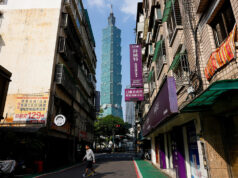Peso to strengthen on data showing recovery
THE PESO is likely to strengthen further this week as the market prices in data showing the economy is off to a gradual recovery and await developments in legislation on the government’s crisis response.
The local unit finished trading at P49.80 per dollar on Friday, strengthening by 20 centavos from its P50 close on Thursday, according to data from the Bankers Association of the Philippines. This was the peso’s strongest finish in nearly three years or since its P49.63 per dollar close on June 15, 2017
The local unit also rallied by 81 centavos week on week from its P50.61-per-dollar finish on May 29.
Despite the increase in the country’s unemployment rate in April, the continued easing in inflation may have fanned positive sentiment, said UnionBank of the Philippines, Inc. Chief Economist Ruben Carlo O. Asuncion.
“Peso was stronger most probably because of the softer inflation. The unemployment numbers may have already been priced in by investors though,” Mr. Asuncion said in a text message.
Inflation eased for the fourth successive month in May to 2.1%, with downward pressures from food and fuel prices, according to data from the Philippine Statistics Authority (PSA).
The May print is the slowest in six months and compares to the 2.1% logged in April and the 3.2% seen in the same month of 2019.
Meanwhile, the unemployment rate in April surged to a 15-year high of 17.7% coming from the 5.1% a year earlier and the fastest since 2005 when the PSA adopted new definitions for its labor force survey. This translates to about 7.25 million Filipinos who were jobless, higher by more than three times than the 2.27 million in the same month of 2019.
For his part, Rizal Commercial Banking Corp. (RCBC) Chief Economist Michael L. Ricafort said the peso’s strength reflects improving risk sentiment for emerging market currencies as more economies reopen.
“The peso exchange closed stronger amid improved global market risk appetite that led to gains in emerging markets,” he said in a text message.
Investor sentiment this week will depend on the government’s response to the crisis.
“Probably the progress of fiscal stimulus bills may be a factor,” UnionBank’s Mr. Asuncion said.
On June 3, the Senate approved the Bayanihan Act 2 which expands financial aid to industries including farmers, public utility drivers, teachers that have been hit by the pandemic.
Meanwhile, the Corporate Recovery and Tax Incentives for Enterprises (CREATE) bill which looks to fast-track the reduction of corporate income tax to 25% from 30% was unable to be passed before the Congress adjourned. Senators said they will work to ensure the bill is passed by August.
Aside from the bills, RCBC’s Mr. Ricafort said the market will also factor in other data, including US jobs and new coronavirus infections.
Data from the US Labor department showed the jobless rate fell to 13.3% in May from the post-World War II high of 14.7% seen in April, according to a Reuters report.
However, the unemployment rate was seen with record decline for whites but rising for blacks and Asians.
For this week, both Mr. Asuncion and Mr. Ricafort expect the peso to trade at P49.50 to P50 versus the dollar. — L.W.T. Noble with Reuters



